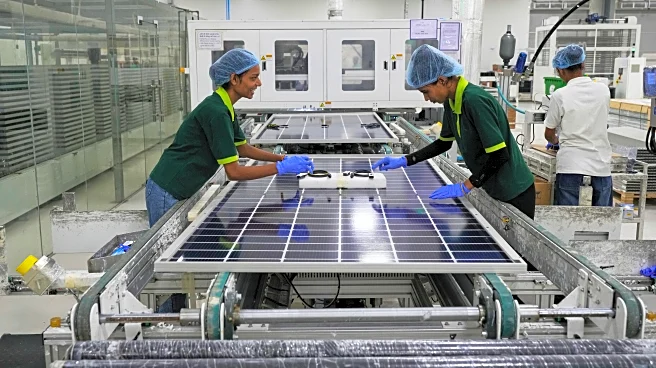BELEM, Brazil (AP) — India is unlikely to submit its climate pledge before the end of the annual United Nations climate summit, raising questions about how the world's most populous nation can influence others on confronting climate change.
Experts say the delay may be a sign of India’s displeasure with a lack of progress toward funding global climate priorities. However, this can also hurt its ability to lead at the climate talks in Brazil.
The country
is considered a key player in global efforts to fight pollution and address global warming, especially as the administration of U.S. President Donald Trump has avoided the climate negotiations. But India has surprised observers as one of the few large countries yet to send the U.N. its formal climate plan, known as a Nationally Determined Contribution, or NDC.
This week at the conference, Bhupender Yadav, India’s environment minister, touted how the country reached previous climate goals early. Yadav also called on rich nations to pay more to help developing countries transition to green energy and respond to climate change impacts.
“Climate change is no longer a distant manifestation, but is real and imminent,” Yadav said Monday while addressing the conference. “Unsustainable growth and development have placed Mother Earth in deep stress.”
Non-fossil fuel sources of energy account for more than half of the electricity capacity of India, which achieved some of its climate goals for the decade ending in 2030, five years ahead of schedule. On the sidelines of the talks, Yadav said India will submit its updated 2035 climate goals by December, news agency Press Trust of India reported.
The South Asian nation has spearheaded the formation of multiple international climate-focused organizations, such as the Coalition for Disaster Resilient Infrastructure and the International Solar Alliance. India is also home to a rapidly growing clean energy sector. Over the past decade, its solar capacity has risen from just 5.7 gigawatts in 2015 to more than 125 gigawatts as of September 2025.
However, Germanwatch, a nonprofit environmental think tank, said India's climate action has fallen behind other countries the past year, partly because of its continued reliance on coal. It released its annual climate change performance index on Tuesday, dropping India from No. 10 last year to No. 23 this year.
The lack of India's official climate goal has been a big topic of discussion at COP30, according to Aarti Khosla, founder of the New Delhi-based climate consultancy Climate Trends.
While India over-delivered on its previously set climate goals, Khosla said not releasing its new climate goals may have a negative impact on the country's international posturing at the conference, especially as it bids to host the 2028 climate talks.
Abhiir Bhalla, a youth adviser for the Commonwealth Human Ecology Council, said the delay of the NDC is disappointing, but he also commended the strides India has made with its expansion of renewable energy.
India has also been a vocal critic of a deal reached at the previous climate talks for countries to provide $300 billion for climate needs, saying the sum is too low.
On Monday, Yadav called for wealthy countries to "deliver new, additional, and concessional climate finance at a scale of trillions, not billions.”
Harjeet Singh, founding director of Satat Sampada Climate Foundation, said Yadav's statement is a sign that ambitious global climate plans won't be effective unless there are legal obligations for countries to follow through. At the same time, India's voice is more crucial than ever as the United States, the world's largest historical emitter, steps back from its climate commitments, he said.
“Large economies like India face more pressure to fill the void,” said Singh, who has attended multiple annual climate talks.
India is looking for concrete details on global financial commitments to fight climate change, said another energy expert attending the summit.
“Something more concrete in terms of delivery of public finance and also adaptation finance is a big concern from India’s side,” said Vaibhav Chaturvedi, senior fellow at New Delhi-based Council on Energy, Environment and Water, a nonprofit think tank.
India's tough stand on global climate funding is welcomed by other countries, said Iskander Erzini Vernoit, director of the Moroccan think tank Imal Initiative for Climate and Development. He said that wealthy countries' commitment to climate finance "has been weak at best, and certainly not commensurate with the urgency of keeping global warming to safe levels.”
___
Associated Press writer Joshua A. Bickel in Belem, Brazil contributed to this report.
___
Follow Sibi Arasu on X at @sibi123.
___
The Associated Press’ climate and environmental coverage receives financial support from multiple private foundations. AP is solely responsible for all content. Find AP’s standards for working with philanthropies, a list of supporters and funded coverage areas at AP.org.
___
This story was produced as part of the 2025 Climate Change Media Partnership, a journalism fellowship organized by Internews’ Earth Journalism Network and the Stanley Center for Peace and Security.















